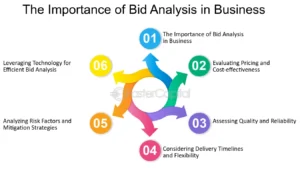Comprehensive Guide to Provider Credentialing Services
Provider credentialing services are a critical component of the healthcare industry. They ensure that medical practitioners meet the necessary qualifications and standards to deliver quality care. Whether you are a solo practitioner, part of a group practice, or a healthcare facility administrator, understanding provider credentialing is vital for operational efficiency and compliance.
This article explores the nuances of provider credentialing services, why they matter, and how they benefit healthcare providers and patients alike.
What Are Provider Credentialing Services?
Provider credentialing is verifying healthcare providers’ qualifications, certifications, and professional background. This ensures they meet the regulatory and institutional standards required to practice medicine and participate in insurance networks. Credentialing involves reviewing licenses, education, training, work history, and malpractice records.
Professional credentialing services streamline this process, helping healthcare providers focus on patient care while ensuring compliance with industry regulations.
Why Are Provider Credentialing Services Important?
- Compliance with Regulations: Credentialing ensures that healthcare providers comply with local, state, and federal regulations, reducing the risk of legal and financial penalties.
- Patient Safety: Verifying a provider’s qualifications ensures that patients receive care from skilled and certified professionals.
- Insurance Network Inclusion: Credentialing is essential for healthcare providers to join insurance networks, enabling them to serve a broader patient base and receive reimbursements.
- Reputation Management: Credentialed providers enhance the healthcare facility’s reputation by ensuring that only qualified professionals are part of the team.
Key Steps in Provider Credentialing
The credentialing process typically involves the following steps:
- Application Submission: Providers complete a detailed application form, including personal details, qualifications, licenses, and certifications.
- Primary Source Verification (PSV): The credentialing organization verifies the information provided directly by the issuing authorities.
- Background Checks: This step includes reviewing work history, malpractice claims, and criminal records to ensure the provider’s integrity.
- Committee Review: A credentialing committee evaluates the verified information and decides.
- Re-Credentialing: Providers must renew their credentials periodically to ensure compliance with industry standards.
Benefits of Provider Credentialing Services
- Efficiency and Accuracy: Credentialing services use advanced tools and expertise to complete the process efficiently, minimizing errors and delays.
- Cost Savings: Outsourcing credentialing reduces administrative costs and allows healthcare providers to focus on core operations.
- Improved Patient Trust: Patients are more likely to trust healthcare facilities that employ credentialed professionals.
- Streamlined Reimbursements: Credentialed providers experience fewer denials and delays in insurance reimbursements.
- Time Management: By delegating credentialing tasks to experts, healthcare providers can dedicate more time to patient care.
Challenges in Provider Credentialing
Despite its importance, provider credentialing comes with challenges, such as:
- Time-Consuming Process: Credentialing can take weeks or months, especially for new providers.
- Complex Requirements: Different insurers and states have unique requirements, complicating the process.
- Maintaining Accuracy: Ensuring that all information is accurate and up-to-date can be challenging, particularly for large healthcare facilities.
How Professional Credentialing Services Help
Credentialing services simplify the process for healthcare providers by offering:
- Expert Guidance: These services are managed by professionals who understand the complexities of credentialing.
- Technology Integration: Using advanced credentialing software, they streamline data collection, verification, and submission.
- Customized Solutions: Services are tailored to the specific needs of solo practitioners, group practices, or large healthcare facilities.
- Compliance Monitoring: Credentialing services keep track of regulatory updates and ensure ongoing compliance.
- Periodic Updates: They manage re-credentialing schedules, ensuring providers maintain their credentials without interruption.
Choosing the Right Credentialing Service
When selecting a credentialing service, consider the following factors:
- Experience and Reputation: Look for services with a proven track record in the healthcare industry.
- Customization: Ensure the service can meet your unique needs, whether you’re an individual provider or a large facility.
- Technology: Advanced software and digital tools can streamline the credentialing process.
- Cost-Effectiveness: Compare the service’s fees with the value they provide.
- Support Services: Choose a provider that offers ongoing support and compliance monitoring.
Future Trends in Credentialing
The credentialing industry is evolving with advancements in technology and changing regulatory requirements. Some trends to watch include:
- Artificial Intelligence (AI): AI-powered tools are improving the accuracy and speed of credentialing processes.
- Blockchain Technology: Blockchain offers secure and transparent record-keeping, making it easier to verify credentials.
- Telehealth Credentialing: As telehealth grows, credentialing services are adapting to include remote care providers.
- Centralized Databases: National databases are simplifying the verification process for providers working across multiple states.
Conclusion
Provider credentialing services are indispensable in the healthcare industry, ensuring compliance, efficiency, and quality care. By outsourcing this critical task to professional services, healthcare providers can focus on delivering exceptional patient care while maintaining their operational integrity.
Whether you’re a solo practitioner or a healthcare facility administrator, investing in reliable credentialing services can save time, reduce costs, and enhance your reputation. Embrace the benefits of streamlined credentialing and ensure your practice thrives in today’s competitive healthcare environment.














Post Comment